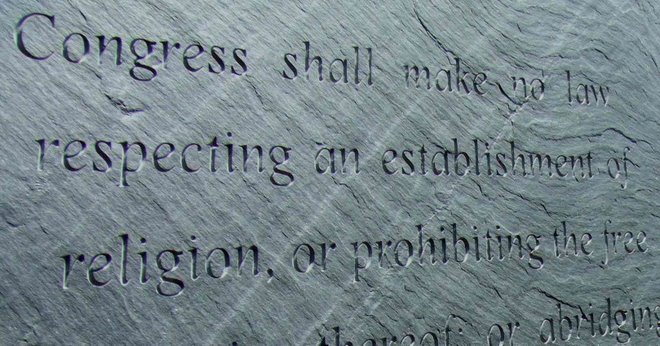The New York Times Review of Books, Volume 49, Number 17 · November 7, 2002
"The Religious Success Story"
By Jared Diamond
Darwin's Cathedral: Evolution, Religion, and the Nature of Society
by David Sloan Wilson
University of Chicago Press, 268 pp., $25.00
"In the beginning, all people lived around a great ironwood tree in the jungle, speaking the same language. One man whose testes were enormously swollen from infection with a parasitic worm spent his time sitting on a branch of the tree, so that he could rest his heavy testes on the ground. Out of curiosity, animals of the jungle came up and sniffed at his testes. Hunters then found the animals easy to kill, and everyone had plenty of food and was happy.
"Then, one day, a bad man killed a beautiful woman's husband, in order to get the woman for himself. Relatives of the dead husband attacked the murderer, who was defended in turn by his own relatives, until the murderer and his relatives climbed into the ironwood tree to save themselves. The attackers tugged on lianas hanging from one side of the tree, in order to pull the tree's crown down towards the ground and get at their enemies.
"Finally, the lianas snapped in half, causing the tree to spring back with tremendous force. The murderer and his relatives were hurled out of the tree in many different directions. They landed so far away, in so many different places, that they never found each other again. With time, their languages became more and more divergent. That is why people today speak so many different languages and cannot understand each other, and why it is hard work for hunters to catch animals for food."
That story was related to me by Sikari people, a tribe of six hundred New Guineans. The story exemplifies a widespread class of myths called origin myths, familiar to us through accounts of the Garden of Eden and the Tower of Babel in the Bible's Book of Genesis. Despite those parallels with Judeo-Christian religions, traditional Sikari society lacked churches, priests, and sacred books. Why is the Sikari belief system so reminiscent of Judeo-Christian religions in its origin myth, yet so different in other respects?
All known human societies have had "religion," or something like it. But what really defines "religion"? Scholars have been debating this and related questions for centuries. For a belief system to constitute a religion, must it include belief in a god or gods, and does it necessarily include anything else? When, in human evolutionary history, did religion appear? Human ancestors diverged from the ancestors of chimpanzees around six million years ago. Whatever religion is, we can agree that chimps don't have it, but was there already religion among our Cro-Magnon ancestors of 40,000 years ago? Were there different historical stages in the development of religions, with creeds like Christianity and Buddhism representing a more recent stage than tribal belief systems like that of the Sikaris? These longstanding questions have become acute to all of us reeling from recent terrorist attacks, and struggling to comprehend the fanaticism that drove them. We tend to associate religion with humanity's noble side, not with its evil side: Why does religion sometimes preach murder and suicide?
If we are to answer these questions, David Sloan Wilson tells us in Darwin's Cathedral, we must recognize that religions are human institutions and belief systems evolving by the process which biologists term "group selection." Religions potentially offer practical, social, and motivational benefits to their adherents. But religions differ among themselves in the degree to which they motivate their adherents to have children, to rear those children to become productive members of society, and to convert or kill believers in competing religions. Those religions that are more successful in these respects will tend to spread, and gain and retain adherents, at the expense of other religions. Two quotations from Wilson's book will serve to summarize his thesis:
Something as elaborate—as time-, energy-, and thought-consuming —as religion would not exist if it didn't have secular utility. Religions exist primarily for people to achieve together what they can-not achieve alone. The mechanisms that enable religious groups to function as adaptive units include the very beliefs and practices that make religion appear enigmatic to so many people who stand outside of them.
Demographic change in a population depends upon births, deaths, immigration [i.e., conversion in the case of religion], and emigration [i.e., abandoning one's religion]. The balance of these inputs and outputs must be positive for any religion to persist, but their relative importance can vary widely. As one extreme example, the Shakers were successful for a brief period of time based purely on immigration, and without any births. Based on immigration alone, Judaism is at a large disadvantage compared to proselytizing Christian and Islamic religions, which accounts in part for its minority status. Despite its disadvantage with respect to immigration, however, Judaism has persisted on the strength of the other factors that contribute to demographic growth (high birth rate, low death rate, and low emigration).
Wilson introduces his argument with two chapters examining religion from the twin perspectives of group evolutionary biology and the social sciences. The next four chapters test his hypothesis against some actual religions: early Calvinism, Bali's water temple system, Judaism, the early Christian Church, the Houston Korean Church, and the Christian doctrine of forgiveness. These discussions are full of new perspectives on institutions seemingly so well known that one might think there was nothing new to say about them.
For example, why, among the innumerable tiny Jewish sects competing with each other and with non-Jewish groups within the Roman Empire in the first century AD, did Christianity emerge as the dominant religion three centuries later? Early Christianity's distinctive features contributing to this result included its active proselytizing (unlike mainstream Judaism), its practices promoting having more babies and enabling more of them to survive (unlike contemporary Roman society), its opportunities for women (in contrast to contemporary Judaism and Roman paganism and to later Christianity), its social institutions resulting in lower death rates of Christians than of Romans from plagues, and the Christian doctrine of forgiveness. That doctrine, which is often misunderstood as the simplistic notion of indiscriminately turning the other cheek, actually proves to be part of a complex, context-dependent system of responses ranging from forgiveness to retaliation. Under certain circumstances, experimental tests carried out by playing simulated games show that forgiving someone who has done you one wrong may really be the response most likely to gain you advantages in the future.
Obviously, the main subject of Darwin's Cathedral—religion—is widely contentious. In addition, many of the subjects on which Wilson draws to interpret religion—subjects such as group selection, adaptation, hypothesis testing, and how to "do" science— are contentious among scientists. Discussions of these subjects tend to be partisan, oversimplified, and riddled with misstatements. A great virtue of Wilson's book is the scrupulous fairness with which he treats controversial matters. He is careful to define concepts, to assess both their range of applicability and their limitations, and to avoid posturing, misrepresentations, exaggerated claims, and cheap rhetorical devices. Thus, Wilson's book is more than just an attempt to understand religion. Even to readers with no interest in either religion or science, his book can serve as a model of how to discuss controversial subjects honestly.
It seems to me that what we think of as "religion" encompasses four different, originally unrelated, elements: explanation, standardized organization, moral rules of good behavior toward in-groups, and (all too often) rules of bad behavior toward out-groups. Those elements served different functions; they appeared or began to disappear at different times in human history; and they came together only within the last eight thousand years. Most efforts to define religion begin with one element: belief in a god or gods. But that definition immediately plunges us into difficulties, as Wilson notes:
Religion is sometimes defined as a belief in supernatural agents. However, other people regard this definition as shallow and incomplete. The Buddha refused to be associated with any gods. He merely claimed to be awake and to have found a path to enlightenment.
Some Jews and Unitarians as well, and many Japanese people, are agnostics or atheists but still consider themselves to belong to a religion. Conversely, many tribal societies believe in agents that we Westerners think of as spirits rather than as gods. What do these agents have in common?
An essential feature shared by the Judeo-Christian God, ancient Greek gods, and tribal spirits could be formulated as follows: "a postulated supernatural agent for whose existence our senses can't give us evidence, but which is invoked to explain things of which our senses do give us evidence." Quite a few Americans today believe God to be a "first cause" that created the universe and its laws and explains their existence, but that let the universe run thereafter without divine interference. Creationists invoke God to explain a lot more, including the existence of every plant and animal species, but most creationists wouldn't invoke God to explain every sunrise, tide, and wind. Yet the ancient Greeks did invoke gods or supernatural agents to explain sunrises, tides, and winds. The New Guinean societies in which I have lived go further and have supernatural explanations for the songs of each bird species (as the voices of former people transformed into birds).
Clearly, in modern Western society religion's explanatory role has gradually become usurped by science. Where Sikaris and Old Testament believers invoke origin myths (like the ironwood tree and the Tower of Babel) to explain linguistic diversity, modern linguists instead invoke historical processes of language change. Explanations of sunrises, tides, and winds are now left to meteorologists and astronomers. For modern scientists, the last bastion of religious explanation is God-as-First-Cause: science still has nothing to say about why the universe exists at all. From my freshman year at Harvard in 1955, I recall the great theologian Paul Tillich defying his class of hyper-rational undergraduates to come up with a scientific answer to his simple question: "Why is there something, when there could have been nothing?"
Besides a belief in God, a second defining feature of religions that we take for granted is standardized organization. Most modern religions have full-time priests (alias rabbis, ministers, or whatever else they may be called) who receive either a salary or else life's necessities. Modern religions also have churches (alias temples, synagogues, mosques, etc.). Within any given sect, all those churches use standardized sacred books (Bibles, Torahs, Korans, etc.), rituals, art, music, architecture, and clothing. None of those features applies to New Guinea tribal beliefs.
Historically, those organizational features of religion arose to solve a new problem emerging as ancient human societies became richer and more populous. In recent times all Europeans have lived under political systems termed states, which European scholars initially assumed to be the natural form of political organization. But after 1492 AD, as Europeans spread over the world, they encountered peoples living under simpler and less populous political systems variously termed chiefdoms, tribes, and bands. From buried artifacts preserved at archaeological sites (such as recognizable trappings of chiefs and kings), archaeologists infer that the first chiefdoms emerged from tribal societies in the Fertile Crescent of western Asia around 5500 BC, and that the first states with kings emerged from chiefdoms around 3500 BC.
Band and tribal societies are too small and unproductive to generate food surpluses that could feed full-time priests, chiefs, tax collectors, potters, or specialists of any sort. Instead, every adult in the band or tribe has to acquire his or her own food by hunting, gathering, or farming himself or herself. Only larger and more productive societies generate surpluses that can be used to feed chiefs and other leaders or crafts specialists, none of whom grows or hunts for food.
How did such a diversion of food come about? A dilemma results from the confluence of three facts: populous societies are likely to defeat small societies; but populous societies require full-time leaders and bureaucrats; and full-time leaders and bureaucrats must be fed. In Wilson's words,
...purely from the group-level functional standpoint, societies must become differentiated [into leaders and followers] as they increase in size. Thirty people can sit around a campfire and arrive at a consensual decision; thirty million people cannot.
But how does the chief get the peasants to tolerate what is basically the theft of their food by classes of social parasites? This problem is familiar to the citizens of any democracy, who ask themselves the same question at each election: What have the incumbents done since the last election to justify the fat salaries that they pay themselves out of the public coffers?
The solution devised by every known chiefdom and early state society— from ancient Egypt to Polynesian Hawaii to the Inca Empire—was to proclaim an organized religion with the following tenets: the chief or king is related to the gods; he or she can intercede with the gods on behalf of the peasants (e.g., to send rain or ensure a good harvest). In return for those services, the peasants should feed the chief and his priests and tax collectors. Standardized rituals, carried out at standardized temples, serve to teach these religious tenets to the peasants so that they will obey the chief and his lackeys. As early theocratic states evolved into the empires of ancient Babylon and Rome and commandeered more and more food and labor, the architectural trappings of state religions became ever more elaborate.
Of course, within recent centuries in the Judeo-Christian world, this trend has been reversed, and religion is much less than before the handmaiden of the state; politicians rely instead on other means to persuade or coerce all of us peasants. But the fusion of religion and state persists in some Muslim countries, Israel, and (until recently) Japan and Italy. Even the US government invokes God on its currency and places official chaplains in Congress and in the armed forces.
Yet a third attribute of religion that we take for granted is to justify or reinforce moral precepts. All major world religions teach what is right, what is wrong, and how one should behave. Hence it will surprise most Jews, Christians, and Muslims to learn that this link between religion and morality is entirely absent in the New Guinean societies of which I have experience. It is not that New Guinean societies are amoral: most of them have stricter codes of social obligations than do European and American societies. Yet in all my years in traditional New Guinean societies, I have never heard any invocation of a god or spirit to justify how people should behave toward others. Instead, social obligations depend on relationship. Because a band or tribe contains only a few dozen or a few hundred individuals respectively, everyone in the band or tribe knows everyone else and their relationships. One owes different obligations to different blood relatives, to relatives by marriage, to members of one's own clan, and to fellow villagers belonging to a different clan.
Those relationships determine, for instance, whether you may refer to people by their names, marry them, or demand that they share their food and house with you. If you get into a fight with another tribe member, everyone else in the tribe is related to or knows both of you and pulls you apart. The problem of behaving peacefully toward unfamiliar individuals never arises, because the only unfamiliar individuals are members of enemy tribes. Should you happen to meet an unfamiliar person in the forest, of course you try to kill him or else to run away; our modern custom of just saying hello and starting a friendly chat would be suicidal.
Thus a new problem arose around 7,500 years ago, when some tribal societies evolved into chiefdoms comprising thousands of individuals—a far greater number than any single person can know by name and relationship. Emerging chiefdoms and states faced big problems of potential instability, because the old tribal rules of behavior no longer sufficed. If you encountered an unfamiliar member of your chiefdom and fought with him according to tribal rules of behavior, a brawl would result as your relatives jumped in on your side and his relatives jumped in on his side. A death in such a brawl would spark efforts by the victim's relatives to kill one of the murderer's relatives in revenge. What's to save the society from collapsing in an incessant orgy of brawls and revenge murders?
The solution to this dilemma of large societies is the one used in our own society, and documented in all chiefdoms and early states for which we have information. Rules of peaceful behavior apply between all members of the society and are enforced by the political leaders (chiefs or kings) and their agents, who justify the rules by a new function of religion. The gods or supernatural agents are presumed to be the authors of the rules. People are taught from childhood onward to obey the rules, and to expect severe punishment for breaking them (because now an attack on another person is also an offense against the gods). Prime examples familiar to Jews and Christians are the Ten Commandments.
It nevertheless troubles skeptics that each religion's account of its moral code's supernatural origins seems implausible to outsiders. For example, non-Mormons doubt Joseph Smith's claim that the angel Moroni appeared to him on September 21, 1823, to reveal golden plates buried on a hilltop near Manchester Village in western New York State and awaiting translation. Non-Mormons also doubt the sworn statements of eight witnesses (Christian Whitmer, Hiram Page, and six others) who claimed to have seen and handled the plates. But what, really, is the difference between the statements of Joseph Smith and his witnesses, and the biblical accounts of divine revelations to Moses and Jesus, except for millennia of elapsed time and our differing skepticisms derived from our differing upbringings? As Wilson points out, the success of a religion's moral code depends on whether the code motivates the religion's adherents to constitute a smoothly functioning society, not on whether the religion's claims happen to be fictitious: "Even massively fictitious beliefs can be adaptive, as long as they motivate behaviors that are adaptive in the real world"; "...factual knowledge is not always sufficient by itself to motivate adaptive behavior. At times a symbolic belief system that departs from factual reality fares better."
In recent secularized societies, such rules of moral behavior within society have moved beyond their religious origins. The reasons why atheists, as well as many believers, now don't kill their enemies derive from values instilled by society, and from fear of the potent hand of the law rather than fear of the wrath of God. But from the rise of chiefdoms until the recent rise of secular states, religion justified codes of behavior and thereby enabled people to live harmoniously in large societies where one encounters strangers frequently.
Another new problem faced by emerging chiefdoms and states, but not by the bands and tribes of previous history, involves wars. Because tribes use relationship by blood or marriage, not religion, to justify moral rules, tribesmen face no moral dilemmas in killing members of other tribes with whom they have no relationship. But once a state invokes religion to require peaceful behavior toward fellow citizens with whom one has no relationship, how can a state convince its citizens not to apply those same precepts during wartime? States permit, indeed they command, their citizens to steal from and kill citizens of other states against which war has been declared. After a state has spent eighteen years teaching a boy "Thou shalt not kill," how can the state turn around and say "Thou must kill, under the following circumstances," without getting its soldiers hopelessly confused and prone to kill the wrong people (e.g., fellow citizens)?
Again, in recent as in ancient history, religion comes to the rescue with the last of its four elements. The Ten Commandments apply only to one's behavior toward fellow citizens within the chiefdom or state. Most religions claim that they have a monopoly on the truth and that all other religions are wrong. Commonly in the past, and all too often today as well, citizens are taught that they are permitted or obliged to kill and steal from believers in those wrong religions. That's the dark side of all those noble patriotic appeals: for God and country, por Dios y España, etc. It in no way diminishes the guilt of the current crop of murderous religious fanatics to acknowledge that they are heirs to a long, widespread, vile tradition.
This basic hypocrisy of religions seems at first to defy explanation. Mr. Wilson's response is that a religion's success (or its "fitness," to use the language of evolutionary biology) can be defined only by comparison with the successes of other religions. Whether one likes it or not, religions can, and often have, increased their success (the number of their adherents) by killing or forcibly converting adherents of other religions:
Whenever I strike up a conversation about religion, I am likely to receive a litany of evils perpetrated in God's name. In most cases, these are horrors committed by religious groups against other groups. How can I call religion adaptive in the face of such evidence? The answer is "easily," as long as we understand fitness in relative terms. It is important to stress that a behavior can be explained from an evolutionary perspective without being morally condoned.
The Bible, especially the Old Testament, is full of exhortations to be cruel to heathens. Deuteronomy 20:10–18, for example, explains the obligation of the Israelites to practice genocide: when your army approaches a distant city, you should enslave all its inhabitants if it surrenders, and kill all its men and enslave its women and children and steal their cattle and everything else if it doesn't surrender. But if it's a city of the Canaanites or Hittites or any of those other abominable believers in false gods, then the true God commands you to kill everything that breathes in the city. The Book of Joshua describes approvingly how Joshua became a hero by carrying out those instructions, slaughtering all the inhabitants of over four hundred cities. The book of rabbinical commentaries known as the Talmud analyzes the potential ambiguities arising from conflicts between those two principles of "Thou shalt not kill [believers in thine own God]" and "Thou must kill [believers in another god]." For instance, according to some Talmudic commentators an Israelite is guilty of murder if he intentionally kills a fellow Israelite; is innocent if he intentionally kills a non-Israelite; and is also innocent if he kills an Israelite while throwing a stone into a group consisting of nine Israelites plus one heathen (because he might have been aiming at the one heathen).
In fairness, this outlook is more characteristic of the Old Testament than of the New Testament, whose moral principles have moved far in the direction of defining one's dealings with anyone—at least in theory. In practice, of course, some of history's most extensive genocides were committed by European colonialists against non-Europeans, relying for moral justification on the New Testament. The New Testament itself provides some explicit support for this policy: Revelations 9:4–5, for instance, says that it's okay to torture heathens for five months, though not to kill them.
Interestingly, among New Guineans, religion is never invoked to justify killing members of an out-group. Many of my New Guinean friends have described to me their participation in genocidal attacks on neighboring tribes. In all those accounts, I have never heard the slightest hint of any religious motive, of dying for God or the true religion, or of sacrificing oneself for any idealistic reason whatsoever. The religion-supported ideologies that accompanied the rise of states instilled into their citizens the obligation to obey the ruler ordained by God, to obey moral precepts like the Ten Commandments only with respect to fellow citizens, and to be prepared to sacrifice their lives while fighting against other states (i.e., heathens). That's what makes societies of religious fanatics so dangerous: a tiny minority of their adherents (e.g., nineteen of them) die for the cause, and the whole society of fanatics thereby succeeds at killing far more of its perceived enemies (e.g., 3,025 of them).
Wilson explains that fanatical religious sects, such as expansionist Islam and Christianity, spread as a result of group selection operating at the level of human societies: those early state societies whose religions were especially effective at motivating their citizens to sacrifice themselves succeeded in defeating societies with less motivating religions. Fictitious beliefs —such as the belief that a heaven populated by beautiful virgins awaits those who die for the cause—can contribute powerfully to effective motivation.
Rules of bad behavior toward out-groups reached their high point in the last 1,500 years, as fanatical Christians and Muslims inflicted death, slavery, or forced conversion on the heathen. Within the twentieth century, European states have turned instead to secular grounds to justify killing millions of citizens of other European states, but religious fanaticism is still strong in some other societies.
Where does this leave us in relation to religion's future in modern societies that are increasingly permeated by a scientific outlook? According to Wilson,
There is no evidence that scientific understanding replaces religious belief in modern cultures. America has become more religious over the course of its history, not less, despite the influence of science and engineering.... A very high proportion of scientists themselves profess a belief in God and participate in organized religions.... Clearly, we must think of religious thought as something that coexists with scientific thought, not as an inferior version of it.
Wilson's thought-provoking book will stimulate each reader to examine his or her personal view of religion's future, and I can't resist doing so either. Personally, I accept purely secular reasons to pay taxes and to refrain from murder and theft, so that societies can promote the happiness of their citizens. I deny a religious need to kill members of out-groups, and I accept a secular need to do so under extreme circumstances, where the alternative would be worse. I remain uneasy about relying on religion to justify morality: today, as in the past, it's too small a step from there to justifying the killing of adherents of other religions. I accept the possibility of scientific explanations for al-most every mystery of the natural world—but not for the greatest mystery of all. I still have no scientific answer, and expect there never to be one, to that challenge which Paul Tillich posed to me and my skepti-cal classmates: "Why is there something, when there could have been nothing?" Religion will thrive as long as there are human beings alive to reflect on the mystery of the First Cause.












